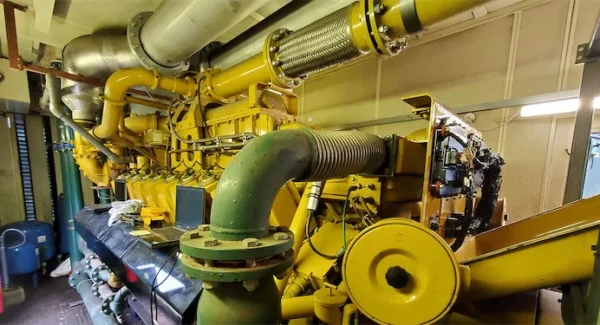When the Prime Minister, Rishi Sunak sacked Nadim Zahawi as Conservative Party Chairman, many thought that he would simply replace him with a successor and that would be that. Instead, Sunak decided to use the opportunity to not just reshuffle his Cabinet but to deliver on a promise he had made during the Conservative Party summer leadership campaign and change the machinery of government.
The Department for Business, Energy and Industrial Strategy was split into three – creating the Departments for Energy Security and Net Zero (DESNZ), Business and Trade, and Science, Innovation and Technology.
Until last year, there was only one game in town when it came to energy – Net Zero. However, Russia’s invasion of Ukraine shone a light on an issue that hadn’t been receiving the attention it warranted – energy security.
Within months of the invasion, the Government published its Energy Security Strategy, setting out how the UK was going to secure clean and affordable energy for the long term. Since then, the fallout from the UK’s reliance on expensive fossil fuels has dominated the news agenda, with stories about people having to choose between heating or eating, and businesses that have been forced to close due to spiralling energy costs.
There is no doubt that achieving Net Zero and improving our energy security are two of the biggest challenges the UK currently faces. Having a dedicated Department with an experienced Cabinet Minister providing increased, and hopefully reinvigorated, ministerial attention to these challenges is welcomed. However, as I am sure Grant Shapps is well aware, there is still significant action and policy required to overcome them.
Net Zero and energy security are intrinsically linked, and the vision from government is for each to be complementary of the other, with ‘homegrown’ clean energy replacing fossil fuel imports and thus improving the UK’s energy security.
There is, however, a risk that the two priorities could compete with each other, especially in the short term. This is best illustrated by the fact that last year while wind-powered electricity rose to almost 27% of 2022 usage, the share of energy coming from gas-fired power stations also rose for the third consecutive year in a row.
Over recent months there have been well-documented examples of the two priorities competing against each other. For example, in October 2022, the Government opened up a new licensing round to allow oil and gas companies to explore the North Sea for fossil fuels.
The argument has been made that, in the short term, these new projects are necessary to fill the gaps left by renewables, which are currently unable to meet the UK’s energy demand.
However, in light of skyrocketing energy bills, the Government must not lose sight of the longer-term goal of Net Zero and must recognise that short-term actions are also required to achieve this.
Improving the UK’s renewable energy capacity is clearly an area Government needs to address and work with the generation industry and other stakeholders to solve. One of the biggest hurdles for the UK to overcome to boost its supply of renewable energy is getting new projects off the ground and connected to the grid.
The time it takes for new projects to get access to the grid varies greatly, but in some instances, developers have reported that the National Grid has quoted them a 13-year timeframe to get their project connected. This not only impacts the projects that are struggling to get connected but will have a knock-on effect on future investment in this area.
While there is no quick fix to get projects connected to the grid in a more timely manner, the Government could look to make other changes to reduce the risk of investment moving elsewhere. Some in the industry, and in green finance, have suggested the Government could seek inspiration from our cousins across the pond. Joe Biden’s Inflation Reduction Act offers over $370 billion in subsidies for clean technology and due to its size and scale has caused concern among the EU that green companies will flock to the US and set up shop there.
Clearly the UK is unable to match such a financial package, but for the DESNZ to deliver on one of its core priorities of seizing Net Zero’s economic opportunities we must make it as easy as possible for clean technology companies to do business and operate, in the UK.
There is also the case to be made for small-scale renewable projects and the role they have to play. Businesses across the UK are increasingly turning to on-site energy generation, with a clear focus on technologies such as solar PV and battery storage. In doing so, businesses are reducing their carbon footprint, but also reducing their reliance on the national grid – beneficial for their energy security and the UK’s as a whole as energy demand reduces.
The journey to energy security will not be a quick one but we must see Net Zero as the vehicle to getting there, rather than a separate destination. The creation of DESNZ provides the opportunity to provide some extra oomph instead of slowly meandering along, let’s hope it is here for the long term and not just until the next general election.






